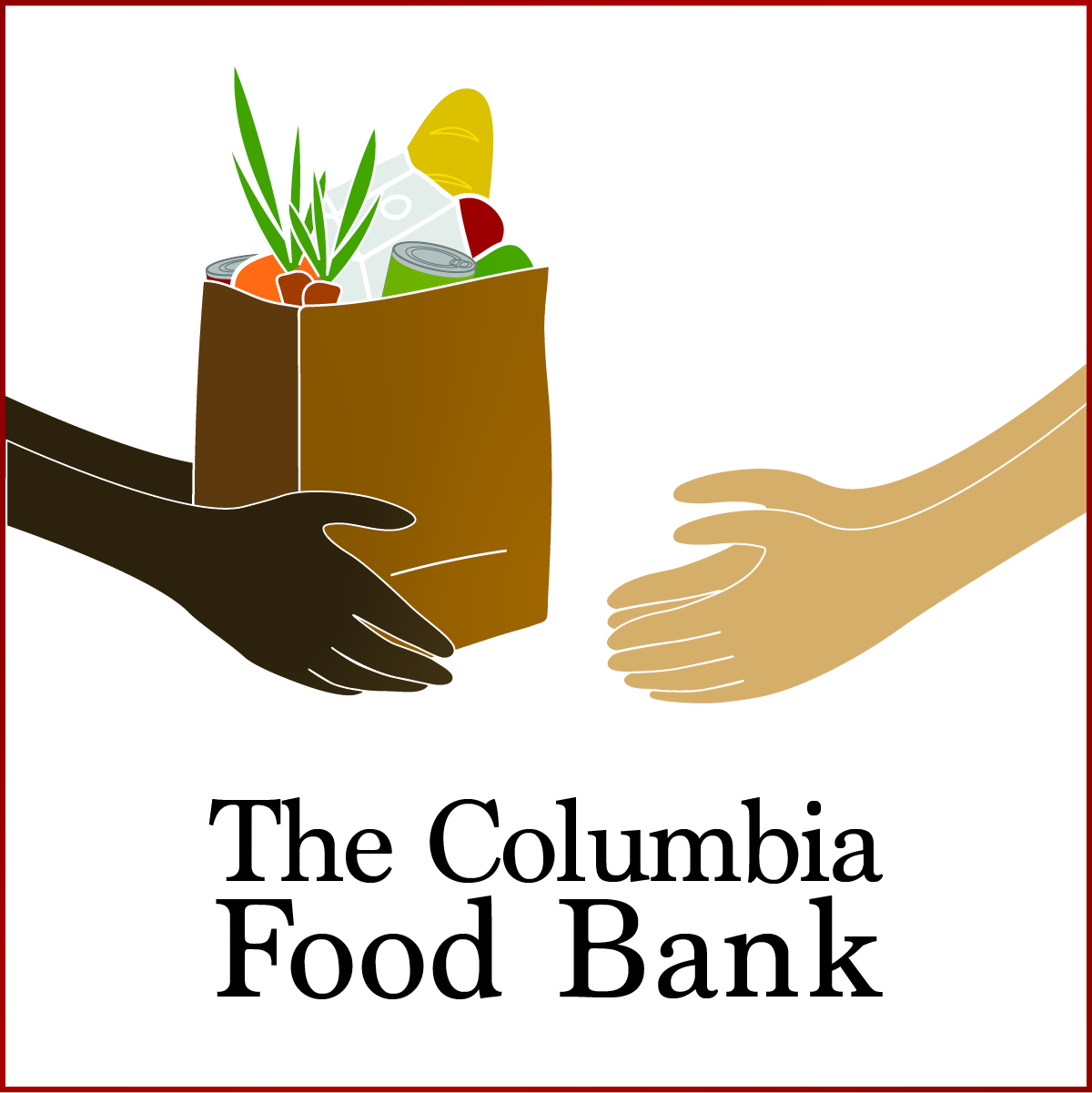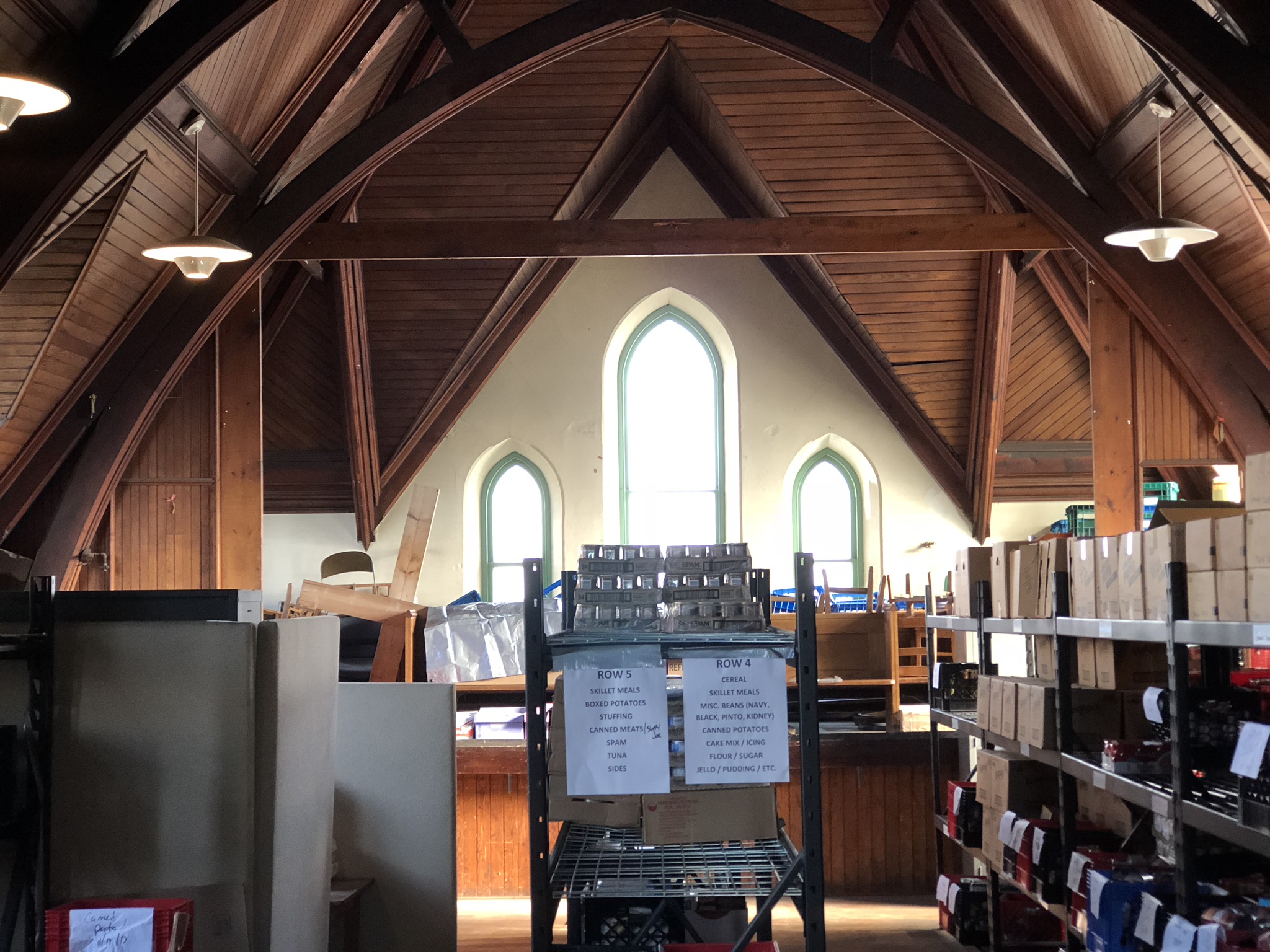
Our Mission
Simply put: we exist to help end food insecurity in Lancaster County. No one should know hunger. We provide meals, support, friendship, and assistance to those in need in our community.
The Columbia Food Bank promotes health, nutrition, human dignity, and potential.
We have been nourishing the bodies and spirits of people in Columbia, Mountville, West Hempfield and Manor Townships for over 30 years.
Our Vision
No one should know hunger!
"Since I began working with Columbia Food Bank, I have realized that there is a huge hunger issue in our community - but moreso, I have come to know the faces and hearts of those who are working to change all that. The result has been life changing for me."
— Donovan Mafnas, Impact Volunteer
History
Fifty to sixty years ago, in the mid-1950’s to mid-1960’s, Saint Paul Episcopal Church included a ministry of Episcopal Church Women (ECW). This organization served free, hot lunches to people of the community six days a week on the second floor of the parish hall. Over time, it became evident that many of the people who came for lunch did not have enough food to start or end the day. In essence, they lived in hunger – men, women, and children. In order to help these people, the ECW started sending them home with groceries after each lunch. The Saint Paul food bank was born.
The food bank was partially supported by State and Federal programs which provided free food and equipment. Additionally, food and monetary donations, and volunteers from the local area helped the food bank meet the community’s people in need. In order to receive free food, people could sign up for a voucher at the local Community Action Program (CAP) office, present it to the food bank and take their groceries home.
Items for pickup during Distribution Days.
In 2003, Father J. Patrick Peters arrived at St. Paul as Rector. At that time Jim and Janice Allen were in charge of the food bank and the average number of families each week was 6 - 9. Each family was given food for about 3 days of meals.
In 2006, St. Paul discovered that the voucher system was no longer including a screening process. After a number of meetings, the church elected to forego all government support (which was contingent on little or no screening) and become self-sufficient even though it meant losing free food and government-provided refrigeration equipment. The food bank instituted a screening and qualification system that is still in force at the present time.
Our Director
Danielle Peters became the Director of the food bank in the fall of 2006. At that time, the food bank’s clientele numbered 50 - 75 families per month and each family received enough food for 10 - 12 meals. Originally, the food bank served the areas of Columbia and Mountville Boroughs and West Hempfield, Manor, and Conestoga Townships. In 2007, the service area no longer included Conestoga Township as there were no clients from there and it was closer to Lancaster City and the Lancaster County Council of Churches and its food bank.
Stocking items in the upstairs storage room.
Rapidly Growing Needs
In the fall of 2006, the food bank communicated to the community its screening process and in the course of only a few months received over $10,000 in donations and enough donated food to last for six months. At that time, the food bank still served 50 - 75 families a month but each family now received enough food for 22 to 24 meals each month. By the end of 2015, the number of families in need numbered 150 to 275 each month. In 2017, the Food Bank handled 30 tons of groceries to provide 55,294 meals to 2,839 people in 1,412 households.
The Columbia Food Bank has handled 274 tons of groceries to provide almost half a million meals to 22,924 people in 10,700 households. 12% of our clients are 0 to 17 years of age, 48% - 18 to 59, and 40% are 60 and older.
St. Paul Episcopal Church
In 2013, St. Paul Episcopal Church decided it was in the best interest of the church, the food bank, and the community to have the food bank become a separate corporation with its own 501 (c) (3) designation. On September 18, 2014, The Columbia Food Bank received its non-profit status as a charitable organization, EIN 46-4461348.
Non-discrimination policy
The Columbia Food Bank does not and shall not discriminate on the basis of race, color, religion (creed), gender, gender expression, age, national origin (ancestry), disability, marital status, sexual orientation, or military status, in any of its activities or operations. These activities include, but are not limited to, the appointment to and termination from its Board of Directors, hiring and firing of staff or contractors, selection of volunteers, selection of vendors, and providing of services.
The Columbia Food Bank is an equal opportunity employer. We shall not discriminate and will not discriminate in employment, recruitment, Board membership, advertisements for employment, compensation, termination, upgrading, promotions, and other conditions of employment against any employee or job applicant on the basis of race, color, religion (creed), gender, gender expression, age, national origin (ancestry), disability, marital status, sexual orientation, or military status, or for any other discriminatory reason.



